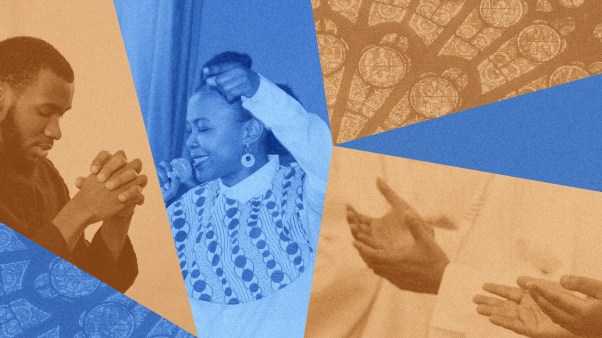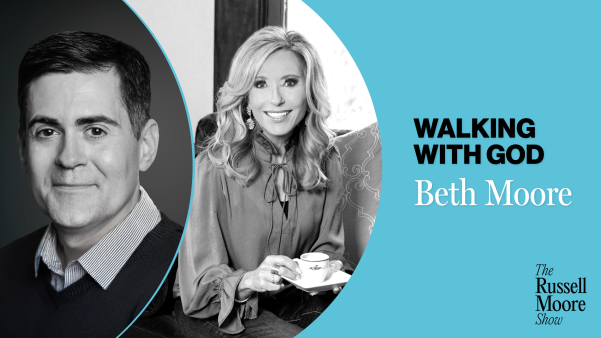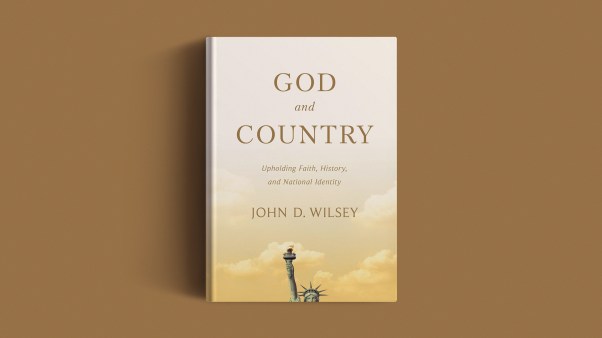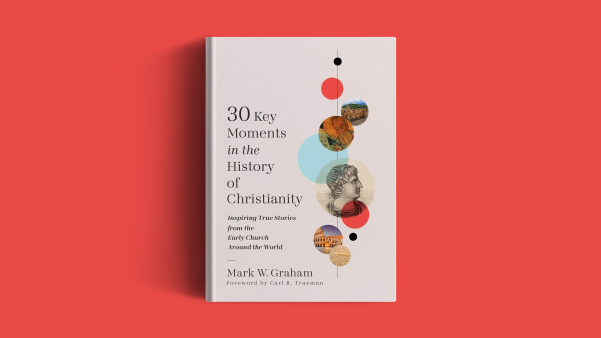Putting Government In Its Place
The Reconstruction of the Republic, by Harold O. J. Brown (Arlington House, 1977, 207 pps., $8.95), is reviewed by Haven Bradford Gow, Arlington Heights, Illinois.
This is a call for a return to our Judeo-Christian heritage, roots, and values. It is not simply a plea to return to the principles of the United States Constitution. For example, the idea that all human beings should be free is not in the Constitution; instead at the time that our Constitution was adopted slavery was legal in several states. When we decided that slavery should be outlawed, we had to go beyond the Constitution to obtain moral, legal, and philosophical support for that view. Where did the opponents of slavery find support for their view? Not from the Constitution but primarily from our Judeo-Christian heritage and secondarily from the natural law view of the rights of man. In other words, neither our society nor our government is the source of our rights. The source of our rights is God, and that is why our rights are inalienable.
Unhappily, we have departed from our Judeo-Christian heritage and one of the results of that is an ever-increasing economic and psychic dependency on government with the result that we have a government of unattainable goals and unbearable controls. Our government reflects our unlimited appetites, and if left unchecked it will lead to a totalitarian state.
Implicit in Brown’s fear of government is his belief that government is artificial, having been instituted as a way of coping with human evil. Unlike Thomas Aquinas’s view of government, that government like society is natural and arises from the demands of man’s nature for friendship, marriage, family, and authority, Brown’s view of government is the same as that of Augustine, that government has a limited role to play in our society and that it is instituted among men to minimize the consequences of human depravity and sin.
Brown’s view of government is inextricably linked to his philosophy of man. Man, he says, is qualitatively different from animals. He is made by God with the ability to reason, conceptualize, understand and utilize symbols, make free choices, love and hate, and understand and laugh at the meaning of a joke. Human beings are spiritual as well as material. But man also is a flawed creature, afflicted by inner depravity and by original sin. We need government to protect us from that. But since government is made by man it too is flawed; hence we must limit and check it.
Although a person might disagree with Brown’s theology, it provides him with a trenchantly realistic view of human nature and of government. Brown recognizes that the only alternative to more and more state control is a greater degree of self-control. We cannot hope to check and fight the abuses of government power if we can’t or won’t control our own appetites. People who are preoccupied with the sensual side of life lack the much-needed strength of mind and character to check governmental abuses and wrongdoing. A free republic demands men of integrity and character who are willing and able to sacrifice personal convenience for the sake of the common good. “Self-control depends on understanding ourselves as responsible individuals—responsible in the sense that we must answer to an authority or better, to the Authority, God, and also in the sense that we ourselves have a derived authority if we attain a certain excellence of character.” The reconstruction of our republic can and must emanate from a “restored self-consciousness on the part of enough citizens to make generalized state control, instead of more and more necessary, less and less so.” How will this happen? From “a clear understanding of the nature of virtues and of the ugliness of vices.” From—in more philosophical terms—an appreciation and understanding of “the nature, destiny and dignity of man.” These are not just philosophical questions but religious questions.
But is it possible to have a religious answer for a pluralistic society such as ours? In previous times, a religious answer was possible in a free society; indeed, there has been a religious consensus throughout much of our national history. I think that this consensus no longer exists and that our government’s official position of neutrality on religion hides hostility toward religion. Our government grants favors and benefits to churches and religious groups but it dislikes public expression of one’s religious commitment. Although our government tolerates religious institutions, this will matter very little if our government succeeds, as Brown contends, in “driving from the consciousness of everyone educated in government schools or dealing with government agencies the awareness of religious faith as a reasonable and defensible approach to the question of man, his meaning and his destiny.”
What should be the role of Christians in our society? Brown advocates that Christians work toward the resuscitation and strengthening of intermediate community organizations and institutions, such as the family, the church, and various kinds of self-help and charitable organizations. Also the Christian community ought to help a person identify and maintain the values by which he will conduct his life. The Christian community ought to remind its members that they are creatures of God made in his image and called to be his sons and daughters with rights, obligations, and an assured inheritance in heaven. By doing so Christians may bear witness to the truth of their faith, help to halt or reverse the trend toward an increasingly secularistic and anti-religious society, and achieve order in the soul and order in the republic.
Preaching Past And Present
Walking With the Giants: A Minister’s Guide to Good Reading and Great Preaching, by Warren Wiersbe (Baker, 1976, 289 pps., $7.95), is reviewed by Robert G. Clouse, minister, First Brethren Church, Clay City, Indiana.
Warren Wiersbe, senior pastor of Moody Church in Chicago and speaker on the weekly radio program “Songs in the Night,” writes a column, “Insight for Pastors,” for Moody Monthly. Walking With the Giants is a collection of the best of these columns. The first part of the book consists of biographies and analyses of the published works of nineteen famous preachers, including Alexander Maclaren, Joseph Parker, Charles Spurgeon, Phillips Brooks, Alexander Whyte, G. Campbell Morgan, Frank Boreham, A. W. Tozer, and W. E. Sangster. Wiersbe has a penchant for great Victorian preachers, not shared by everyone. As he states: “If some homiletically inclined archangel were to permit me to select another time and place in which to live, I immediately would ask to be transported to Great Britain during the reign of Queen Victoria.”
Despite this limitation, his work is fascinating and expresses a refreshing sympathy for many kinds of ministers, preaching styles, and theologies. He treats a variety of role models that ought to help every minister. He includes bibliographies in each essay so that the reader may read other books by and about great preachers. Amy Van Martin’s drawings complement the author’s descriptions of each man.
Wiersbe cautions ministers that each person must deliver his own message. As he states in the essay on Whyte, “I am sure all of us can benefit from Whyte’s contribution to sermonic literature by pondering his messages, making them a part of our own spiritual experience, and then translating their truths into daily living and helpful preaching. No man could preach one of Whyte’s sermons as his own and get away with it. And no man can read one of his sermons and easily get away from it” (p. 95).
The second part of the book concentrates on outstanding works about the ministry and preaching. Among the topics in this section are the published Yale lectures, histories of preaching, Bible concordances, and books on pastoral concerns.
Wiersbe gives his readers a great store of useful information. A minister who reads this book will return to his tasks with renewed enthusiasm. He will be challenged not only to read the works of the pulpit giants, but also to share in their triumphs through his own ministry.
Christology Of Jesus And The Church
The Origins of New Testament Christology, by I. Howard Marshall (InterVarsity, 1976, 132 pp., $2.95 pb), is reviewed by Larry W. Hurtado, assistant professor of New Testament, Regent College, Vancouver, British Columbia.
This slim but helpful volume is the first in a new series of brief studies in which “issues of current biblical and theological interest will be tackled by various writers” for theological students and “Christians in general” who desire “reliable, succinct guides to current theological thinking.” In the present book, Marshall (an evangelical Methodist teaching at Aberdeen) offers a guide to modern research on the formation of New Testament teaching about Jesus, drawing on his earlier studies that appeared in several scholarly journals.
Chapter one is a survey of seven major writers in the last 100 years who typify important phases in the modern study of Christology: Liddon, Bousset, Rawlinson, Taylor, Cullmann, Hahn, and Fuller. The chapter concludes by briefly characterizing the present state of the discussion, noting, for example, the concentration on the titles of Jesus and on the “pre-Pauline” period of the church.
In chapter two Marshall emphasizes the importance of accurate knowledge of the early church for studying Christological origins. He warns that much modern work is based on assumptions about the development of the church in neat stages—Jewish Christian, Hellenistic-Jewish Christian, Hellenistic Gentile Christian—which are increasingly questioned in the light of recent research as found in Martin Hengel’s Judaism and Hellenism.
In chapter three the author tackles the question of whether Jesus had a “christology.” Marshall summarizes the implicit evidence that Jesus thought he was the Messiah and, on this basis and against many contemporary scholars, argues that some explicit expression by Jesus cannot be ruled out. Marshall does not describe exactly what this explicit expression might have been.
Chapter four treats the Son of Man title. Marshall cites the important recent literature, but his own discussion displays little vigor and the chapter is weak. The next three chapters discuss the titles “Christ,” “Lord,” and “Son of God.” Each chapter is a competent summary of present research.
Marshall concludes by insisting that the origins of Christology lie in Jesus’ own claims, direct and indirect, and in the resurrection. He finds that the major terms and concepts are borrowed from the Old Testament and Judaism.
All in all, the book defends conservative critical positions and meets well its modest aims. I commend it to students and pastors and to others who desire a guide book to a complicated area of study.
Briefly Noted
The Mind Changers (Tyndale, 1977, 225 pp., $4.95 pb), by Emory A. Griffin, at first glance appears to be a study in how to manipulate potential converts but actually proves to be a “soft-sell” approach to Christian persuasion. Griffin speaks in a jargon more relevant to the young, but his knowledge of the latest psychological techniques of effective communication is pertinent to all ages.










